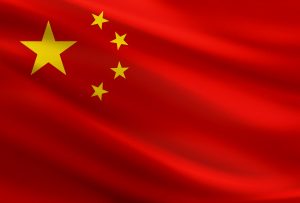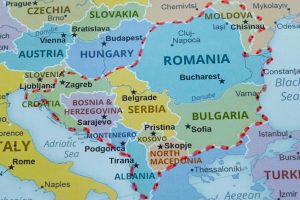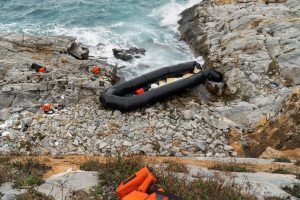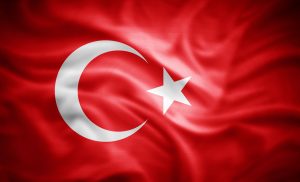Thus, quite apart from Alexander the Great’s campaign in the subcontinent in antiquity, Greeks from the Ottoman empire had begun to move there, and in particular to the Bengal region, in the 18th century and would continue to do so in greater numbers during the period of British colonial rule. In India, they would develop noteworthy professional, economic and business activity over time, which included Ralli Brothers, a commercial firm that enjoyed its heyday in the 19th and 20th centuries and still exists today in nationalized form.
Following Indian Independence in 1947, ties of cooperation and trust began slowly but surely to develop between Athens and New Delhi at the state and political leadership level. These ties were based primarily on the involvement and support of the Non-Aligned Movement, to which India belonged, in the Cyprus Issue at the UN, but also on the personal relationship that developed between Prime Minister Nehru and Archbishop Makarios.
Of course, their relationship did not necessarily extend to promoting relations between Greece and India in the field of economic cooperation, which developed at a slower pace and continue to evolve today.
We should note and recall that, in all South Asia, it is primarily India that has enjoyed democratic governance since independence in an achievement rendered more striking still by the vastness of the country and its population.
In this context, viewing and evaluating India in the light of its post-1947 performance, it becomes clear that, despite what can look from a Western perspective like occasional peculiarities in its political, economic and social conditions, the country is clearly hurtling full speed ahead towards an important future.
Revisiting its history, India has for some time now been waging a campaign to enlarge the UN Security Council, insisting that the conditions at the time the Organization was set up have changed radically and that it is no longer possible for countries as important, large and populous as India and others around the world (including Brazil, Argentina, South Africa, Nigeria and Japan) to be omitted from the Security Council.
Greece has accepted the Indian position in principle, although the question of Security Council enlargement is still under negotiation, and is expected to remain so for some time and for various reasons.
India is, of course, one of the BRICS (along with Brazil, India, China and South Africa), a bloc which added several new members at its recent Annual Meeting and is now seeking to strengthen its role internationally and increase its political and economic clout.
This is a difficult era we are living through, one in which the world we knew since the end of World War II has ceased to exist in the form we had grown used to and counted upon.
Even the safety net provided by the UN can no longer be taken for granted, and it is crucial that the World Order be restored, so there are once again clear rules and limits ring-fencing what states and societies can do.
India today it is an important, emerging country in Asia, with growth rates that are expected to have made it the world’s third largest economy by 2030. A remarkable percentage of its 1.4 billion citizens are extremely affluent and familiar with Greece and its history thanks to their excellent education. It is noteworthy that Indian textbooks do not present Alexander the Great as a conqueror, but as an admirer of Indian culture and philosophy.
They are an audience we should target in the economic and tourism policies we draw up for India—policies which unfortunately remain undeveloped due to our lack of imagination and knowledge of the modern Indian reality.
Having served as Greek Ambassador to India for just short of five years, I believe that Greece has nothing to lose and a great deal to gain from placing a far greater emphasis on developing its bilateral relations with India across the board. This could prove beneficial in many areas in the long and perhaps even medium term, while fostering conditions of understanding and cooperation in the international arena.
It is worth mentioning that an important Indian construction company—GMR, an airport specialist—has already undertaken the construction of the new airport in Kastelli, Crete, in collaboration with Terna, a Greek concern.
It is, of course, especially interesting that Greece-India relations have begun to acquire a new image. In 2023, the visit of India’s Prime Minister to Athens kick-started Indo-Hellenic relations in many areas including strategic cooperation, which has had the potential to drive positive developments for years and could usher bilateral relations into an entirely new era.
The recent talks in Athens between the two Prime Ministers, Messrs Mitsotakis and Modi, and their mutual commitment to ensuring that this first crucial contact is built upon in a meaningful way, allows us to look at the future of Greek-Indian relations overall in a new light.
In this context, we should pay especial note to the agreement reached this year in New Delhi, in the context of the G20 meeting, to create an economic corridor from the Indian Ocean through the Middle East to the Mediterranean, and specifically from India to the Mediterranean and Greece through the Suez Canal. This opens up serious prospects for cooperation between Greece and India, but also with other intermediate countries along the route, which would be of interest in terms of Greece’s relations with the Global South.
The decision to create this corridor has already been endorsed by major international actors including the United States and the European Union.
The process of implementing this corridor will be neither easy nor quick, however. Serious decisions and choices will be required to create a climate in which the project can be brought to fruition; this will certainly involve other countries with an interest in becoming part of this ambitious project.
However, both Athens and New Delhi have engaged with these issues in the meantime. The project certainly provides a new and extremely promising area in which bilateral relations between the two countries can flourish, while also providing momentum in the sphere of economic opportunities, prospects and investments that can be developed bilaterally with India. In this field, subject to our developing the appropriate infrastructure, Greek ports could also be included as transit points for Indian goods destined for Eastern and Western Europe.
*Yannis-Alexis Zepos is Ambassador (ad hon.), Former Secretary General of the Hellenic Ministry of Foreign Affairs and Member of the ELIAMEP Advisory Board
This article is part of the annual Special Edition “ELIAMEP Outlook – Predictions for 2024”, where ELIAMEP’s leading analysts and associates share their predictions for the year ahead. They assess the main challenges, trends, risks, potential opportunities and inflection points of 2024 for Greece, Europe, the Mediterranean and the world.












